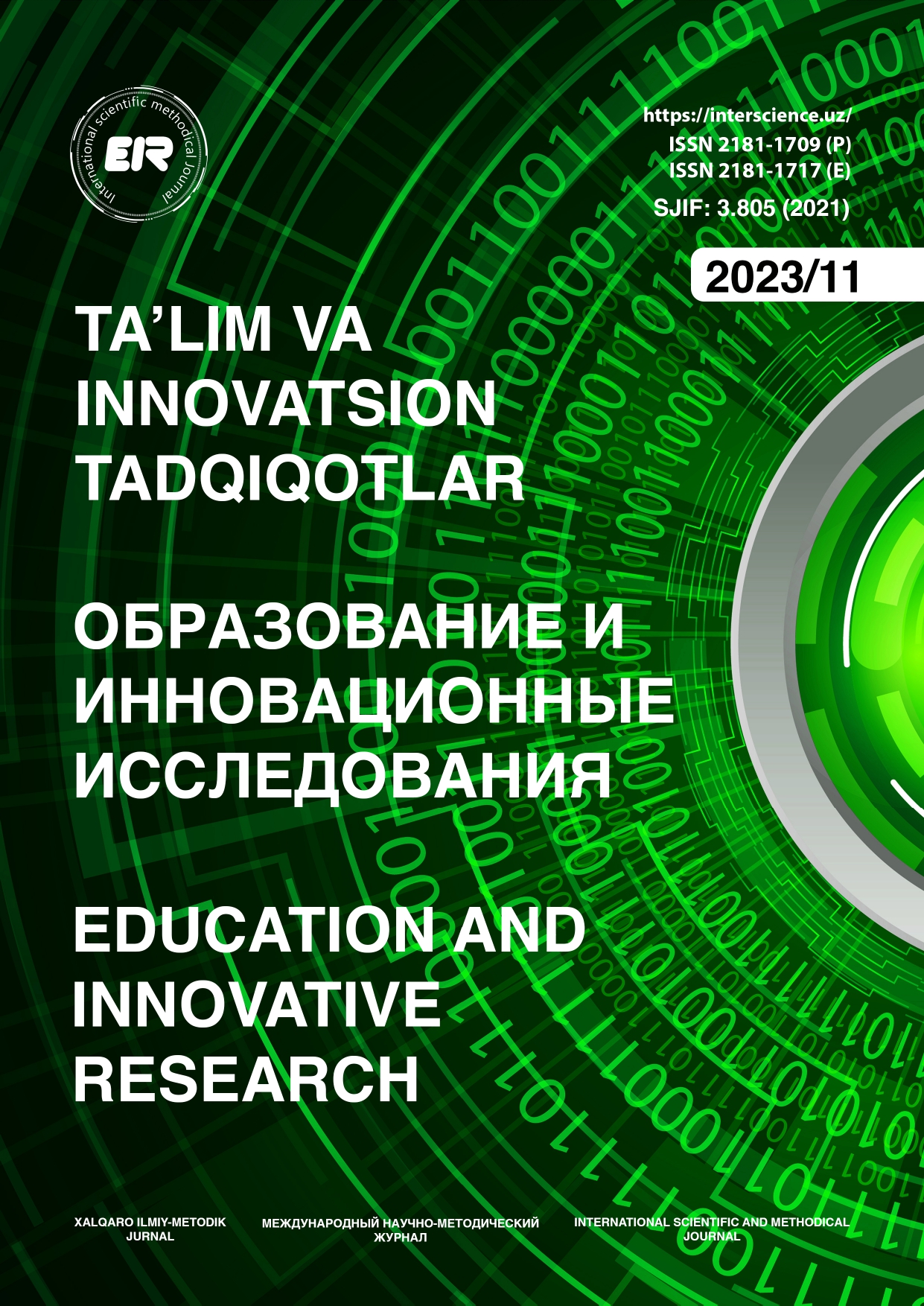THEORY AND DEVELOPMENT OF COGNITIVE EDUCATION: IN THE EXAMPLE OF NON-STATE HIGHER EDUCATION
Axmedov Davlatbek Saloxidin o‘g‘li University of Business and Science universiteti Pedagogika va psixologiya kafedrasi o‘qituvchisi
Keywords:
cognitive abilities, thinking, non-state higher education institutions, thinking,, development of new skills.Abstract
Cognitive skills facilitate thinking, reading, and learning, as well as retention, reasoning, and response. Cognitive development theories try to explain how a person develops and changes from infancy to old age. Cognitive control shapes non-routine actions simultaneously by selecting thoughts, feelings, and behaviors to meet tasks. In this article, we have collected previous and modern theories on cognitive development. The results of the study showed that it is beneficial for non-university higher education students to take courses related to their cognitive abilities, as it contributes to their positive development. The results of the research confirm that reading allows you to develop new skills and expand your knowledge base. The thoughts of students of non-state higher education institutions about learning and achieving success come from the cognitive process.
References
Miller EK, Cohen JD. An integrative theory of prefrontal cortex function. Annual review of neuroscience. 2001;24(1):167-202
Tiego J, Testa R, Bellgrove MA, Pantelis C, Whittle S. A hierarchical model of inhibitory control. Frontiers in Psychology. 2018;9:1339
Yerys BE, Bertollo JR, Kenworthy L, Dawson G, Marco EJ, Schultz RT, et al. Brief report: Pilot study of a novel interactive digital treatment to improve cognitive control in children with autism spectrum disorder and co-occurring ADHD symptoms. Journal of Autism and Developmental Disorders. 2019;49(4):1727-1737
Best JR, Miller PH. A developmental perspective on executive function. Child development. 2010;81(6):1641-1660
Morales J, Calvo A, Bialystok E. Working memory development in monolingual and bilingual children. Journal of Experimental Child Psychology. 2013;114(2):187-202
Phillips CML, Gulley AP, Pearson YE, Smith LE, Eyler J, Noble S, et al. Solving Problems of Mathematics Accessibility with Process-driven Math: Methods and Implications. ASEE Annual Conference & Exposition Proceedings; 2018
Miller PH. Piaget’s theory: Past, present, and future. In: Goswami U, editor. The Wiley- Blackwell handbook of childhood cognitive development. Wiley Blackwell; 2011. pp. 649-672
Vygotsky LS, Cole M. Mind in Society: Development of Higher Psychological Processes. Harvard University Press; 1978
Taylor K. Diverse and critical perspectives on cognitive development theory. New Directions for Student Services. 2016;154:29-41
Kellermann TS, Bonilha L, Lin JJ, Hermann BP. Mapping the landscape of cognitive development in children with epilepsy. Cortex. 2015;66:1-8. Language Learners’ English Development. Child Development
Gascon M, Triguero-Mas M, Martínez D, Dadvand P, Forns J, Plasència A, et al. Mental health benefits of long-term exposure to residential green and blue spaces: A systematic review. International Journal of Environmental Research and Public Health. 2015;12(4):4354-4379. DOI: 10.1111/cdev.13558
Barac R, Bialystok E, Castro DC, Sanchez M. The cognitive development of young dual language Learners: A critical review. Early Child Research Quarterly. 2014;29(4):699-714
Sun H, Bornstein MH, Esposito G. The specificity principle in young dual language learners’ English development. Child Development. 2021;92(5):1752-1768
Skinner BF. Cognitive science and behaviorism. British Journal of Psychology. 1985;76(3):291-301
Pedro EdM, Leitão J, Alves H. Stakeholders’ perceptions of sustainable development of higher education institutions: An intellectual capital approach. International Journal of Sustainability in Higher Education. 2020;21(5):911-942. DOI: 10.1108/IJSHE-01-2020-0030
Zhang LF, Watkins D. Cognitive development and student approaches to learning: An investigation of Perry’s theory with Chinese and US university students. Higher Education. 2001;41(3):239-261. DOI: 10.1023/A:1004151226395
Ikromovna TO. The development of creativity in the students of higher education institutions as an urgent pedagogical problem. In: E Conference Zone. 2022. pp. 301-303
Zhoc KC, Webster BJ, King RB, Li JC, Chung TS. Higher education student engagement scale (HESES): Development and psychometric evidence. Research in Higher Education. 2019;60:219-244





